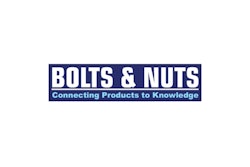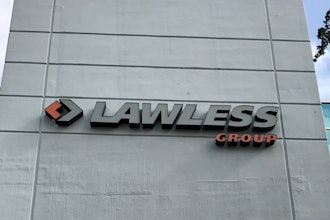Almost all businesses, distributors included, require certain employees to sign an agreement containing one or more post-employment restrictive covenants, also known as non-compete, non-solicitation and/ or confidentiality provisions. Whether part of an employment agreement or otherwise, the enforceability of such provisions is governed by state law.
Regardless of which state laws govern such contracts, most courts favor covenants narrowly tailored to the specific interests that the employer seeks to protect (e.g., real proprietary information, actual customers who interacted with the employee, etc.). Many employers want to believe that “more” will be “better” – that a generic agreement with broad restrictions will better ensure that employees will “behave” when employment ends. This is not typically true in legal practice, as demonstrated by a recent Illinois case: AssuredPartners, Inc. v. Schmitt.
The Particulars of AssuredPartners, Inc. v. Schmitt
AssuredPartners v. Schmitt involved an insurance brokerage’s sales manager engaged in the specialized field of attorneys’ professional liability insurance who had allegedly stolen a proprietary “customer expiration list,” detailing confidential expiration dates of customers’ insurance policies. Despite this serious breach of confidentiality, both the trial and appellate courts refused to enforce the non-competition, non-solicitation and confidentiality provisions in the employee’s “Senior Management Agreement” – on the grounds that they were overbroad.
Not only did the two courts refuse to award any relief to the employer, the trial court also refused to modify the agreement’s restrictions to make them address the true business issues, even though the agreement had contained a “judicial modification” (or “blue-pencil”) provision, which the appellate court also affirmed. While every restrictive covenant case rises and falls on its own facts, the lessons learned from AssuredPartners v. Schmitt drives home that less is more when it comes to post-employment restrictive covenants. Here are some key details about the agreement and how they hold up in court:
Non-Competition Provision: prohibited the employee from working with all types of professional liability insurance – not just his specialty area – anywhere in the United States for 28 months. While the courts determined the provision necessary to protect the customer expiration list, they nonetheless invalidated it because the provision was not narrowly tailored to the specific kind of professional liability insurance sold by the key employee.
Non-Solicitation Clause: restricted the employee from soliciting any customers or potential customers of the employer, regardless of whether they purchased the coverage sold by the key employee. As such, the court found the provision broader than necessary to protect those customers and vendor/supplier relationships developed by the employee while working for AssuredPartners – effectively precluding the employee from working with customers that he did not work with during his employment and/or about whom he had no confidential information.
Confidentiality Provision: precluded the employee from the use or disclosure of any information, observations, and data (including trade secrets) obtained by the employee during the course of employment concerning the business or affairs of the employer and its respective subsidiaries and affiliates. While this language is customary, the courts found it “patently overbroad” because it covered almost all information the employee became aware of during his employment, regardless of whether the information was confidential/proprietary or even obtained before he began his employment. The courts also found the provision unenforceable because it limited the employee’s ability to work in his industry by preventing use of any knowledge gained during employment, and directly or indirectly as a result of his employment.
Judicial Modification: allowed the trial court to modify any of the above-described provisions if deemed overbroad or unreasonable. The trial court refused to rewrite the agreement, however, because to do so would discourage employers from “narrow and precise draftsmanship.”
What Distributors Can Do To Maximize Their Protection
- One size does not fit all. Restrictive covenants should be narrowly and specifically tailored to the particular employee and the interests that the employer wants to protect vis-à-vis the specific employee. Because the same specific post-employment restrictions will not apply to all employees, the burden is on the employer to ensure that each of its agreements is written clearly and explicitly.
- More significant employment warrants more attention to detail. Generally, the more important an employee is to your business, the more precisely a post-employment agreement must be written to address specific competitive information and post-termination competitive threats.
- More is not necessarily better. Drafting broad postemployment restrictions in the hopes of deterring former employees from engaging in competitive activities can actually backfire – leaving you with very complicated – or no – legal remedies, even if the exemployee’s conduct is egregious.
- “Non-Public” Does Not Equal Confidential. “Non-public information” does not automatically meet the standard for “confidential information,” which qualifies for legal protection. Like non-solicitation and non-compete provisions, confidentiality provisions should be limited to information which (1) the employee learned while working with the employer and (2) the employer developed and/or paid to develop that is non-public and creates a competitive advantage.
- Consider Garden Leave. A garden leave provision allows an employer to pay an employee their regular salary and benefits and remain employed for a period of time (e.g., 30-90 days) even if not working – keeping his or her duty bound to the employer (and hence unable to solicit or compete). Employers often use this time to transition work responsibilities and to protect existing customer relationships and truly confidential information.
For distributors who would like to know more about this topic, email or call me: [email protected]; 312-840-7004.
This article originally appeared in Industrial Distribution's March/April print edition. To view the full digital edition, click here.























